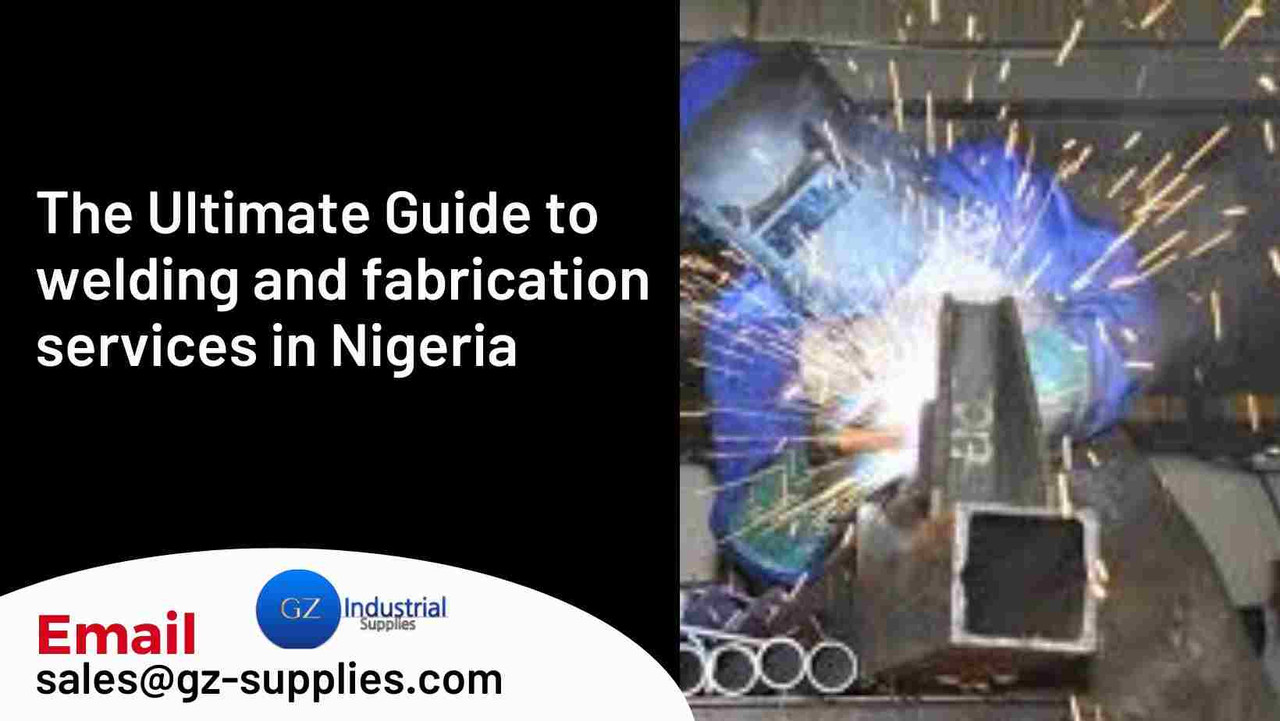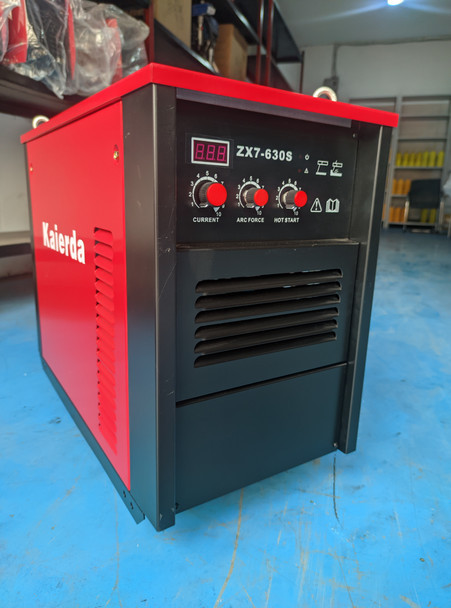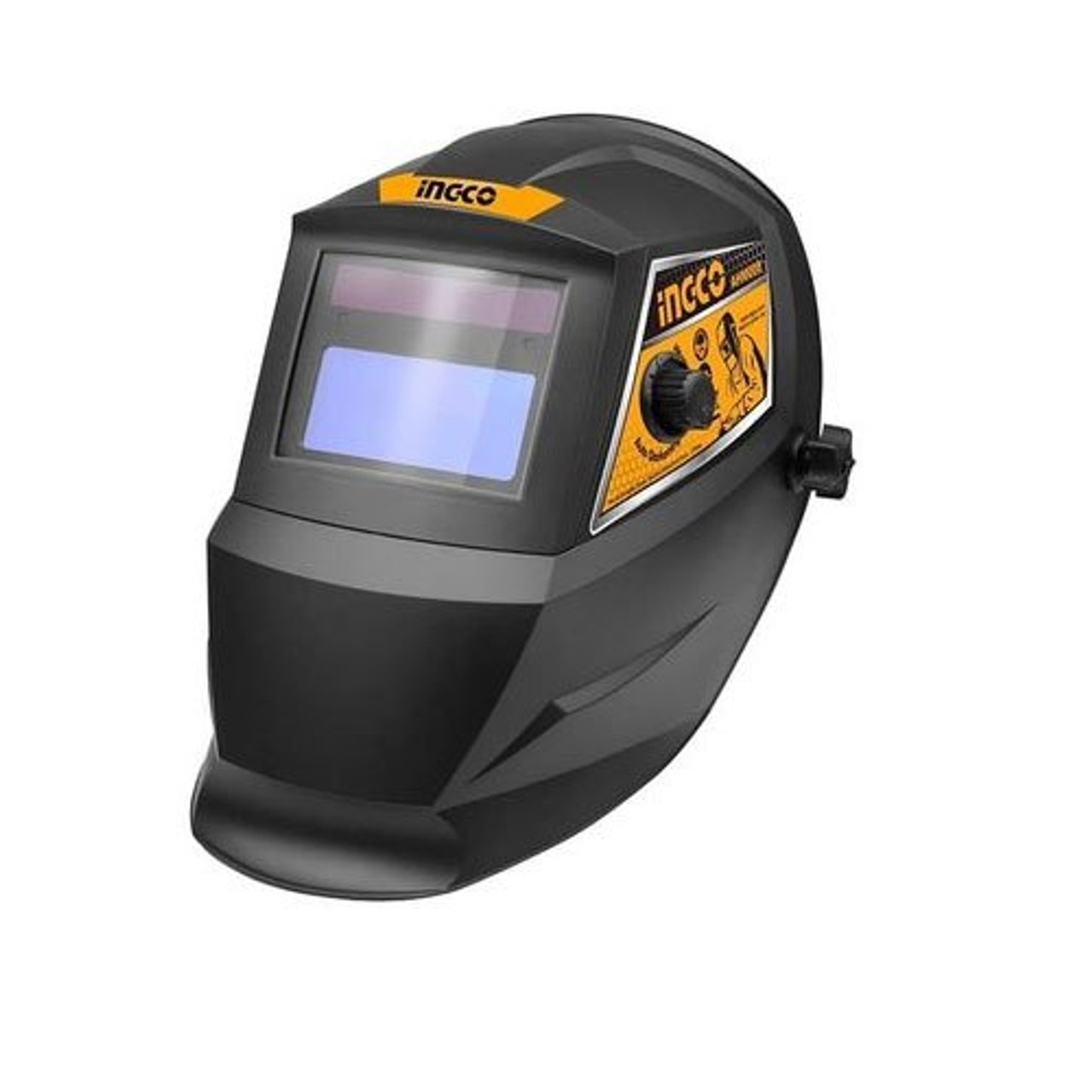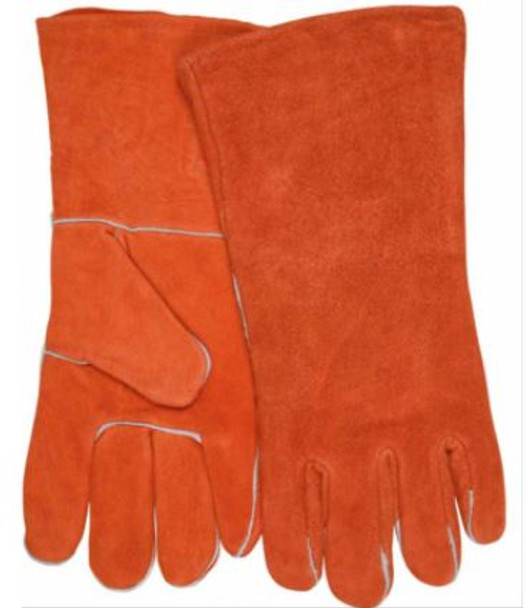The Ultimate Guide to welding and fabrication services in Nigeria
Welding and fabrication plays a vital role in Nigeria's economic development. These services are fundamental to various sectors, including construction, automotive, oil and gas, and infrastructure projects. The ability to join and shape metal materials is crucial for building the frameworks of buildings, bridges, pipelines, and manufacturing essential machinery and vehicles.
 Maxmech Inverter Welding Machine TIG/MMA-250
Maxmech Inverter Welding Machine TIG/MMA-250
we offer a comprehensive range of welding and fabrication services designed to meet the diverse needs of various industries. Our expertise encompasses MIG, TIG, and Stick welding techniques, allowing us to work effectively with a variety of materials, including steel, aluminum, and titanium. We specialize in custom metal fabrication projects that require precise, high-quality welds, such as structural components for buildings, custom automotive parts, and furniture. Additionally, our services include metal repair and maintenance, ensuring that all fabrications are not only created to the highest standards but are also durable and long-lasting. With reliable equipment and a team of certified professionals, we are equipped to handle both large-scale industrial projects and smaller, more intricate designs, ensuring that every job is executed with the utmost precision and quality.
This guide will provide a comprehensive overview of the welding and fabrication services in Nigeria, covering everything from the basic techniques and tools used to the legal and business aspects of setting up a welding workshop. Whether you're a seasoned welder, a newcomer to the field, or an investor, this guide aims to equip you with the knowledge needed to succeed in the Nigerian welding industry.
Overview of Welding and Fabrication Services
Welding involves fusing materials, typically metals, using high heat to melt the parts together and allowing them to cool, causing fusion. Fabrication is the process of creating metal structures by cutting, bending, and assembling processes. Together, these services form the backbone of metalworking industries, enabling the creation of everything from simple tools to complex structures.
Types of Welding Techniques
- MIG Welding (Metal Inert Gas): Uses a continuously feeding wire, is easy to learn, and is efficient for joining thin or thick metals.
- TIG Welding (Tungsten Inert Gas): Known for its precision, it allows for stronger and higher quality welds in more delicate metal.
- Stick Welding: Uses an electrode that doubles as the filler material, suitable for outdoor conditions and thicker materials.
Welding and Fabrication Industry in Nigeria
Nigeria's welding and fabrication sector is a significant contributor to the national economy, driven by a growing demand for infrastructure development and industrialization. The market is characterized by a mix of local small-scale workshops and larger fabricators serving industries such as oil and gas, which demand high precision and quality standards.
Key Industries Served
- Oil and Gas: Fabrication of pipelines, storage tanks, and structural frames for platforms.
- Construction: Steel structures for buildings and bridges.
- Manufacturing: Production of machinery parts and industrial equipment.
Our Custom Fabrication Capabilities
We have the facilities, equipment and expertise to Handle Your Custom Metal Fabrication Project. As a full-service steel center, we have an on-site fabrication shop that includes a wide assortment of specialized shears, saws, press brakes, rollers and welding equipment, enabling us to custom fabricate any of our products. Our expert fabricators are equipped with the specific tools they need to produce custom steel products to meet your needs. GZ Custom fabrication Solutions has been providing fast, cost-effective custom metal fabrication solutions since 2006. Our goal is to help all customers obtain the exact product they need for their unique applications. You will appreciate working with an experienced metal fabrication company that makes customer service a top priority.
Prototyping:
Our capabilities include all types of cutting such as curved or skewed cutouts, straight cutting or notching and special shapes such as segmented circles. We can successfully execute everything from specialty steel custom fabrication to aluminum fabrication, and even architectural metal fabrication for your products that require maximum aesthetic appeal.
We fabricate all our products including wire cloth, perforated metal, expanded metal, bar grating, fiberglass grating, tread grip, perf safety grating and hex metal. Our general metal fabrication services include: To ensure a successful end design and minimal downtime, our team offers sophisticated hydroforming and spinning prototyping services. A very cost-efficient process, hydroforming prototyping is ideal for creating metal parts with highly irregular or complex shapes and sizes. Using CAD and CAM technology, our engineers work closely with clients throughout the entire design process, making adjustments as necessary. Allowing for operation in either deep draw mode or fluid cell process mode, we have a cutting-edge 20-inch hydroforming press. Deep draw mode is ideal for parts with curved geometries, while fluid cell process mode allows for the production of several parts during a single run. Spinning prototyping can be accomplished by using various techniques such as automated, manual or shear forming. Technique selected depends on part geometry, material type, thickness and order quantity. Formed parts then go thru secondary operations such as heat treatment, resizing, machining, polishing, etc. as dictated by drawing requirements.
CNC Turning and Milling
Our Partners facilities are outfitted with CNC mills and CNC lathes to support our metal fabrication services; we use CNC for machining and tooling/fixturing. We routinely work with copper, brass, stainless steel, carbon steel, aluminum, and titanium, as well as other custom metals for various markets, like commercial food equipment, and aerospace applications. Our team also offers a host of secondary services, including turning, drilling, milling, boring, threading, and tapping.
 DongCheng Polisher 750W 180MM DSP180
DongCheng Polisher 750W 180MM DSP180
Metal Polishing
Offering rough to fine polishing with up to a #4 brush finish, our metal polishing services can create the perfect surface for your components. GZ Custom Fabrication team regularly develops specialized finishes for assemblies, decorations, recreational products, threads, and more.
We also partner with trusted companies to offer plating, anodizing, electropolishing, and painting services to meet projects’ particular needs.
Custom Welding
Offering six different welding processes, GZ Industrial Supplies is a premier welding service provider. Our team specializes in SMA Welding GMAW (MIG welding), GTAW (TIG welding), soldering, and automated seam welding, along with cylindrical welding for tubing and pressure applications, as well as aerospace metal fabrication welding.
Our custom industrial fabrication services include resistance spot welding for automotive and electronics industry applications, fencing and more. We fabricate all our products
We proudly comply with AWS (American Welding Society) and ASME (American Society of Mechanical Engineers) standards.
Setting Up a Welding and Fabrication Business in Nigeria
Business Registration and Legal Requirements
To start a welding and fabrication business in Nigeria, you must first register your business with the Corporate Affairs Commission (CAC). This registration provides legal recognition and allows you to operate within the law. Additionally, obtaining necessary permits and licenses, such as from local government authorities and the Standards Organization of Nigeria (SON), is crucial to ensure compliance with industry regulations.
Investment and Financing Options
Starting a welding and fabrication business can require significant capital investment. Costs include purchasing equipment, renting or buying workspace, and hiring skilled labor. Prospective business owners can look into various financing options such as bank loans, private investors, or government grants specifically aimed at supporting small and medium-sized enterprises (SMEs).
 Kaierda inverter manual arc welding machine ZX7-630S
Kaierda inverter manual arc welding machine ZX7-630S
Tools and Equipment Used in Welding and Fabrication
1. Essential Tools and Equipment
The primary tools for a welding and fabrication shop include welding machines, cutting torches, grinders, and safety gear like helmets and gloves. Advanced equipment may include CNC (Computer Numerical Control) machines for precise cutting and shaping, and plasma cutters for efficient metal slicing.
2. Recommendations for Suppliers and Brands
It's important to purchase high-quality tools from reputable suppliers to ensure reliability and efficiency. Brands such as Lincoln Electric, Miller, and Hobart are renowned for their welding equipment. In Nigeria, suppliers like GZ Industrial Supplies offer a range of quality products and support services.
Skills and Training
. Necessary Skills for Welders
Welders need a solid understanding of different metals and their properties, as well as proficiency in various welding techniques. Critical thinking and problem-solving are also essential to address the challenges that may arise during welding processes.
.Training and Certification
Formal training can be acquired through technical colleges or vocational schools in Nigeria that offer courses in metalwork and welding. Additionally, obtaining certification from recognized bodies such as the American Welding Society (AWS) can greatly enhance a welder's credentials and opportunities for advancement.
Challenges in the Welding and Fabrication Industry
Local Challenges
The Nigerian welding and fabrication sector faces several unique challenges, including:
- Infrastructure Deficiencies: Inconsistent power supply and inadequate transportation infrastructure can significantly hinder operational efficiency.
- Skill Shortages: There is often a gap between the industry's demand for skilled labor and the available workforce, which can affect the quality of work and project timelines.
- Material Availability: Fluctuations in the availability and cost of raw materials can impact project budgets and completion schedules.
Solutions and Innovations
To address these challenges, businesses can:
- Adopt Technology: Leveraging modern technology such as automated and robotic welding can improve precision and reduce reliance on manual labor.
- Training and Development: Investing in continuous training for staff can help bridge the skills gap.
- Local Sourcing: Building relationships with local suppliers for materials can reduce costs and increase supply chain reliability.
 Auto Darkening Welding Helmet AHM008 INGCO
Auto Darkening Welding Helmet AHM008 INGCO
Health and Safety Regulations
Safety Standards and Best Practices
Welding and fabrication work involves inherent risks that can be mitigated by adhering to strict safety standards. Businesses must comply with Nigerian safety regulations and international best practices, including proper use of personal protective equipment (PPE), regular safety audits, and ensuring that all equipment is up to code.
Implementing Safety Measures
Effective safety measures include:
- Regular Training: Ensuring all employees are trained in safety protocols.
- Equipment Maintenance: Keeping all welding equipment well-maintained and up-to-date.
- Emergency Preparedness: Establishing clear procedures for handling accidents and emergencies.
Future Trends and Opportunities
Emerging Trends
The Nigerian welding and fabrication industry is expected to evolve with trends such as:
- Increased Automation: As technology advances, there is a growing trend towards automation, which can help tackle the issue of skilled labor shortages.
- Greener Practices: With global movements towards sustainability, there is a push for more environmentally friendly fabrication processes.
Opportunities for Growth
The ongoing development in sectors like construction and oil and gas presents continuous growth opportunities for the welding and fabrication industry. Additionally, initiatives to improve infrastructure and promote industrialization in Nigeria will likely increase demand for these services.
A. Further Reading
For those interested in deeper insights, recommended readings include industry publications and online resources that focus on advanced welding techniques and market analyses. checkout Tikweld blog posts
B. Industry Associations and Networks
Joining associations like the Nigerian Institute of Welding (NIW) can provide networking opportunities, industry updates, and professional development resources.
For more information on quality tools and materials for your welding and fabrication needs, visit GZ Industrial Supplies at https://gz-supplies.com. Explore our extensive range of products and benefit from our expert advice to enhance your projects and business operations.
frequently asked questions (FAQs) about welding and fabrication services
1. What is the difference between welding and fabrication?
Welding is a specific process that involves joining two pieces of metal together by melting the parts with heat and allowing them to fuse upon cooling. Fabrication, on the other hand, is a broader term that encompasses multiple processes including welding, cutting, bending, and assembling to create machines and structures from raw materials.
2. What are the most common types of welding used in industrial applications?
The most common types of welding used in industrial applications include:
MIG Welding (Metal Inert Gas): Versatile and fast, ideal for both thick and thin materials.
TIG Welding (Tungsten Inert Gas): Provides high-quality, precise welds for materials like stainless steel and aluminum.
Stick Welding: Effective for outdoor conditions and on rusty or dirty materials.
3. Can welding be done on all types of metals?
Most metals are weldable, but the approach and technique might vary significantly depending on the type of metal. For instance, metals like aluminum require specific techniques like TIG welding and special handling due to their properties like high thermal conductivity and oxidation tendency. Other metals, like cast iron, pose challenges but can be welded with the proper preheating and cooling techniques.
4. What safety measures should be taken during welding?
Safety measures in welding include:
Wearing appropriate personal protective equipment (PPE) such as helmets, gloves, and protective eyewear.
Ensuring good ventilation to avoid inhalation of harmful fumes.
Keeping flammable materials away from welding sites.
Regularly inspecting welding equipment for any signs of wear or damage.
5. How do I choose the right welding service provider?
Choosing the right welding service provider involves several considerations:
Experience and Expertise: Look for providers with extensive experience and knowledge in the specific type of welding you need.
Certification: Ensure the welders are certified and have undergone proper training.
Equipment Quality: Check if the provider uses high-quality, modern equipment that can handle your specific requirements.
Customer Reviews and References: Assess feedback from previous clients to gauge reliability and quality of service.

Contact Us Now to Discuss Your Fabrication Needs. We offer custom solutions for all your metalwork requirements.
Additional Resources
Understanding Metal Properties and Their Impact on Welding Success
Welding and fabrication price list in Nigeria..
Welding and fabrication work in Lagos, Welders near me
Welding and fabrication services in Abuja
Conclusion
This guide has provided a comprehensive overview of the welding and fabrication services in Nigeria, covering essential aspects from setting up a business to navigating industry challenges and looking ahead to future trends.With the right approach, tools, and training, there is significant potential for successful and profitable welding and fabrication businesses in Nigeria. Stakeholders are encouraged to leverage emerging trends and government initiatives to capitalize on these opportunities.
Contact us for all welding and fabrication services












